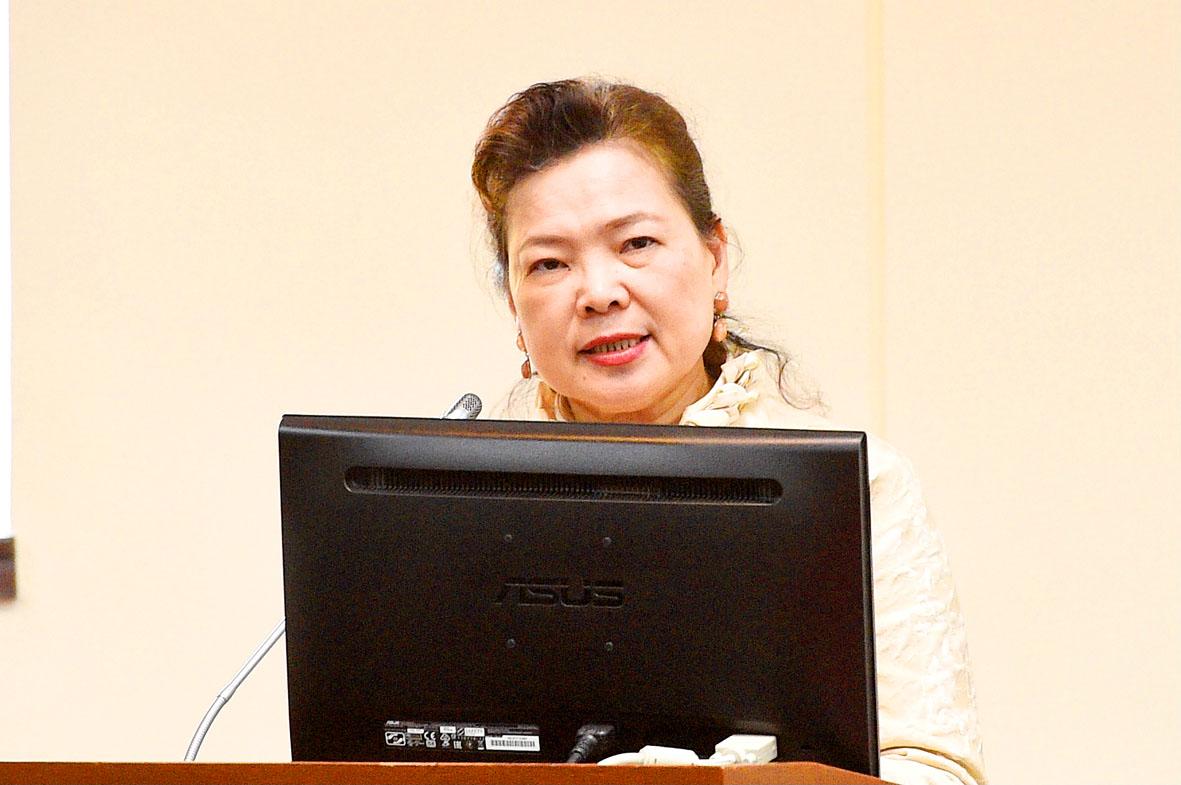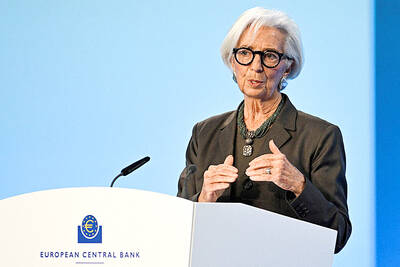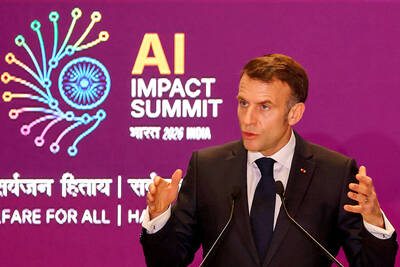CPC Corp, Taiwan’s (CPC, 台灣中油) sale of a 35 percent interest in its Chad oil field to a Chinese company sparked harsh questioning of Minister of Economic Affairs Wang Mei-hua (王美花) in the Legislative Yuan on Monday.
The arrival early this month of the first barrels of oil from the Oryx Oilfield in Chad was celebrated in Taiwan, but lawmakers soon became alarmed when they learned that CPC in 2016 sold half of its 70 percent stake to China CEFC Energy Co (華信能源).
Last week, the ministry submitted a classified report on the share sale, but Chinese Nationalist Party (KMT) Legislator Yang Chiung-ying (楊瓊瓔) said it did not address core concerns about who authorized the sale of such a large stake to a Chinese company.

Photo: George Tsorng, Taipei Times
“Shouldn’t the ministry form a committee to get to the bottom of this issue?” Yang asked.
CPC president Lee Shun-chin (李順欽) had told the legislature’s Economics Committee that the initial plan was to only sell 28 percent of its stake, but the Chinese firm insisted on 35 percent and no other companies at the time would agree to CPC’s terms.
At the time, Paul Chen (陳綠蔚) was CPC president and Lin Sheng-chung (林聖忠) was chairman, but both have since retired.
An internal ministry department has been investigating the matter, Wang said, promising to submit a report to lawmakers by Jan. 17.
The Oryx Oilfield is CPC’s first successful attempt to independently prospect and develop an oil field overseas.
The sale was a necessary risk-management strategy, CPC had previously said, adding that it had signed contracts assuring its continual control of the site, despite the Chinese company owning an equal stake.

European Central Bank (ECB) President Christine Lagarde is expected to step down from her role before her eight-year term ends in October next year, the Financial Times reported. Lagarde wants to leave before the French presidential election in April next year, which would allow French President Emmanuel Macron and German Chancellor Friedrich Merz to find her replacement together, the report said, citing an unidentified person familiar with her thoughts on the matter. It is not clear yet when she might exit, the report said. “President Lagarde is totally focused on her mission and has not taken any decision regarding the end of

French President Emmanuel Macron told a global artificial intelligence (AI) summit in India yesterday he was determined to ensure safe oversight of the fast-evolving technology. The EU has led the way for global regulation with its Artificial Intelligence Act, which was adopted in 2024 and is coming into force in phases. “We are determined to continue to shape the rules of the game... with our allies such as India,” Macron said in New Delhi. “Europe is not blindly focused on regulation — Europe is a space for innovation and investment, but it is a safe space.” The AI Impact Summit is the fourth

CONFUSION: Taiwan, Japan and other big exporters are cautiously monitoring the situation, while analysts said more Trump responses ate likely after his loss in court US trading partners in Asia started weighing fresh uncertainties yesterday after President Donald Trump vowed to impose a new tariff on imports, hours after the Supreme Court struck down many of the sweeping levies he used to launch a global trade war. The court’s ruling invalidated a number of tariffs that the Trump administration had imposed on Asian export powerhouses from China and South Korea to Japan and Taiwan, the world’s largest chip maker and a key player in tech supply chains. Within hours, Trump said he would impose a new 10 percent duty on US imports from all countries starting on

STRATEGIC ALLIANCE: The initiative is aimed at protecting semiconductor supply chain resilience to reduce dependence on China-dominated manufacturing hubs India yesterday joined a US-led initiative to strengthen technology cooperation among strategic allies in a move that underscores the nations’ warming ties after a brief strain over New Delhi’s unabated purchase of discounted Russian oil. The decision aligns India closely with Washington’s efforts to build secure supply chains for semiconductors, advanced manufacturing and critical technologies at a time when geopolitical competition with China is intensifying. It also signals a reset in relations following friction over energy trade and tariffs. Nations that have joined the Pax Silica framework include Japan, South Korea, the UK and Israel. “Pax Silica will be a group of nations